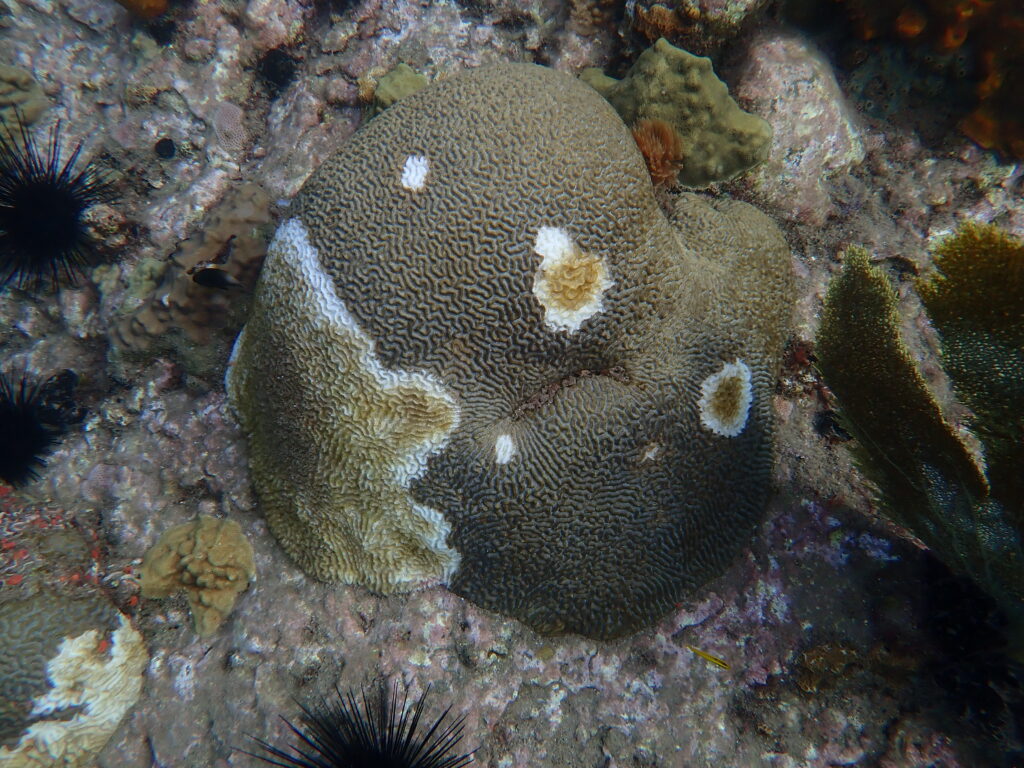CHARLOTTE AMALIE — Assistant Secretary for Insular and International Affairs Carmen G. Cantor concluded the 47th annual meeting of the United States Coral Reef Task Force (USCRTF) this week. This interagency task force unites expertise from the federal government, states, territories, freely associated states, Fishery Management Councils, and partners to better understand and mitigate threats to coral reef ecosystems and associated communities. Discussions this week revolved around strategies for enhancing management and restoration and addressing the challenges facing corals and their ecosystems.
Assistant Secretary Cantor and National Oceanic and Atmospheric Administration’s Assistant Administrator for the National Ocean Service Nicole LeBoeuf co-chaired the weeklong meeting. They were joined by U.S. Virgin Islands Governor Albert Bryan, American Samoa Governor Lemanu Peleti Mauga, White House Council on Environmental Quality Chair Brenda Mallory, and White House Associate Director for Puerto Rico and the Territories Gretchen Sierra-Zorita, as well as several other key Principals.
Several environmental stressors impact coral reefs and are contributing to their decline, including poor water quality, rising sea surface temperatures, overfishing, illegal harvesting, invasive species and disease. The USCRTF meeting focused on strategies to reduce these threats, including by addressing issues related to disease, land-based pollution, and climate change.
Additionally, the USCRTF discussed efforts to utilize improved restoration techniques and develop local plans to maintain sustainable fish populations for coral conservation goals. During the meeting, Task Force members approved the inclusion of Salt River Bay, St. Croix, U.S. Virgin Islands, as the next USCRTF Watershed Partnership Initiative priority site. Participants also engaged with scientists to witness the impacts of warmer-than-normal water temperatures, the spreading Stony Coral Tissue Loss Disease, and other challenges affecting coral reefs in the U.S. Virgin Islands.
Healthy coral reefs offer essential services to ecosystems and communities, including support for fisheries, biodiversity, and the foundation of tourism-based economies. They also serve as natural infrastructure safeguarding low-lying coastal communities and enhancing resilience against storms and rising sea levels. The ongoing loss of these natural assets has far-reaching consequences that extend beyond local communities where coral reefs are found.
The USCRTF includes a diverse membership comprising 14 federal agencies; seven states, territories, and commonwealths; three Freely Associated States; and four Fishery Management Councils. The Department of the Interior plays a crucial role in stewardship of these insular regions, recognizing the economic and ecological significance of maintaining healthy, sustainable coral reef ecosystems.
The Department has deployed historic resource to support coral reefs, including funding from President Biden’s Investing in America agenda. Earlier this year, the Department announced funding from the Inflation Reduction Act to protect the Faga’alu Watershed in American Samoa, which was identified by the USCRTF as a priority watershed. In 2022, the Office of Insular Affairs announced nearly $2.8 million in fiscal year 2022 grant funding under the OIA Coral Reef Initiative and Natural Resources program to help protect corals and fight invasive species in the U.S. territories and the freely associated states.



